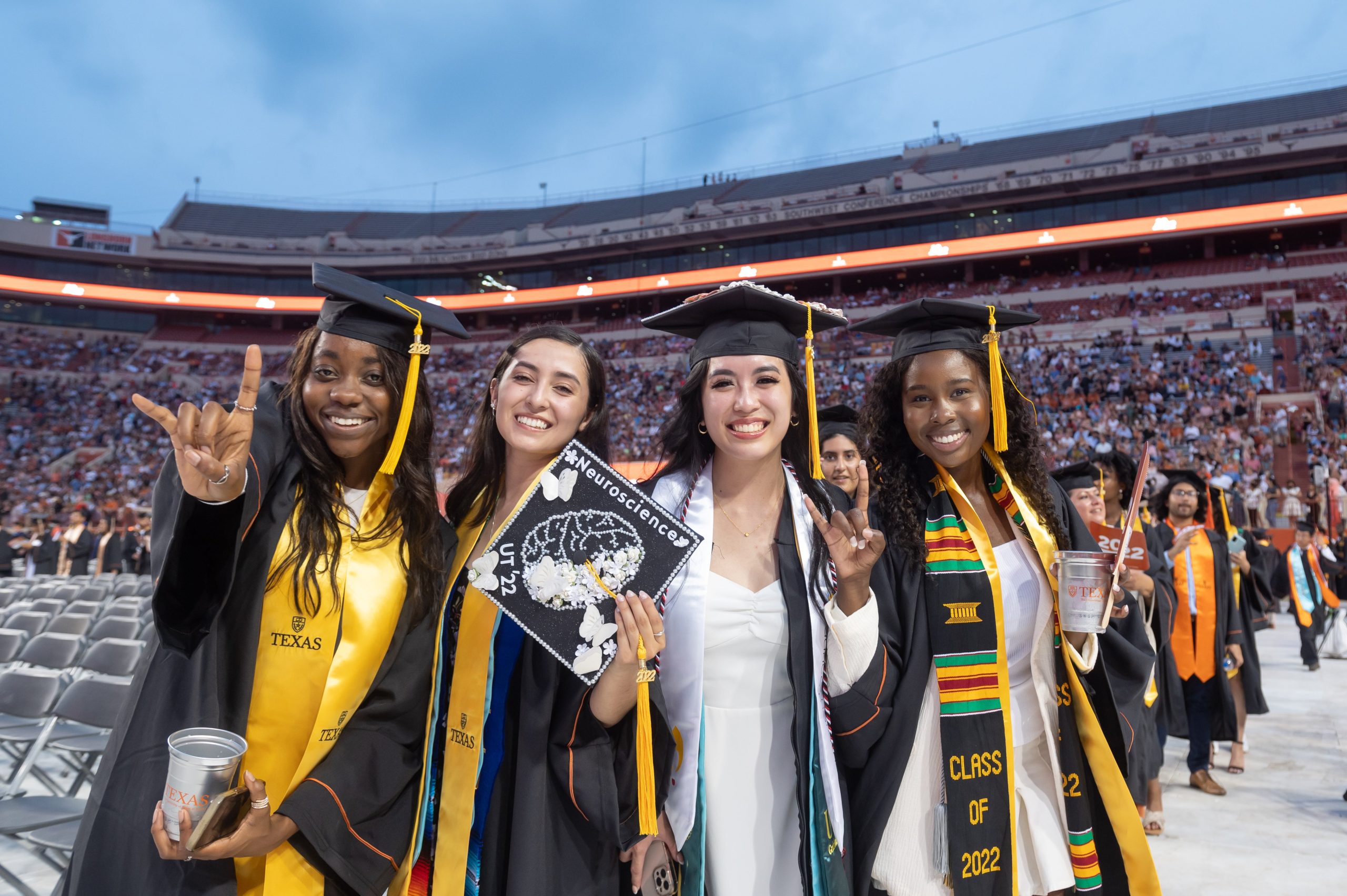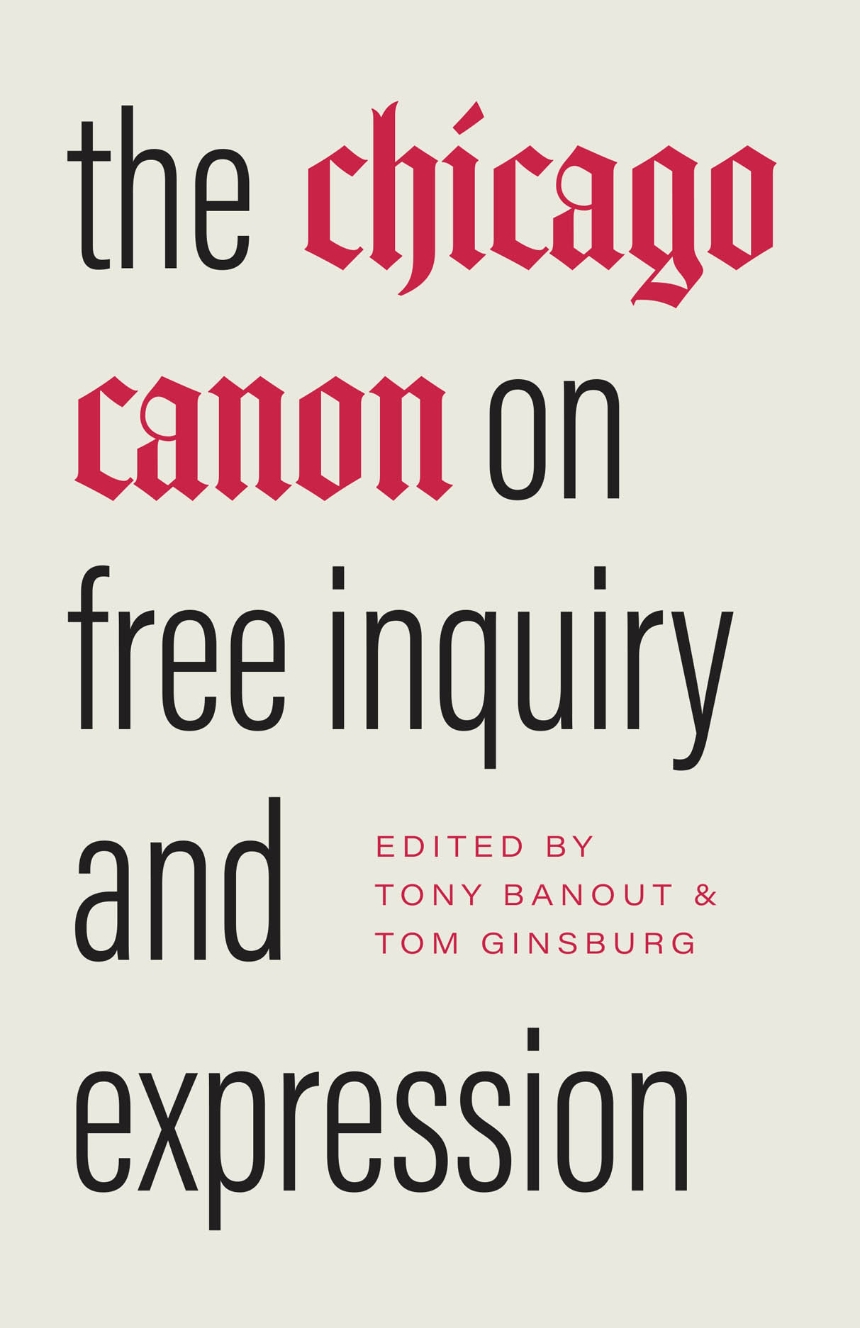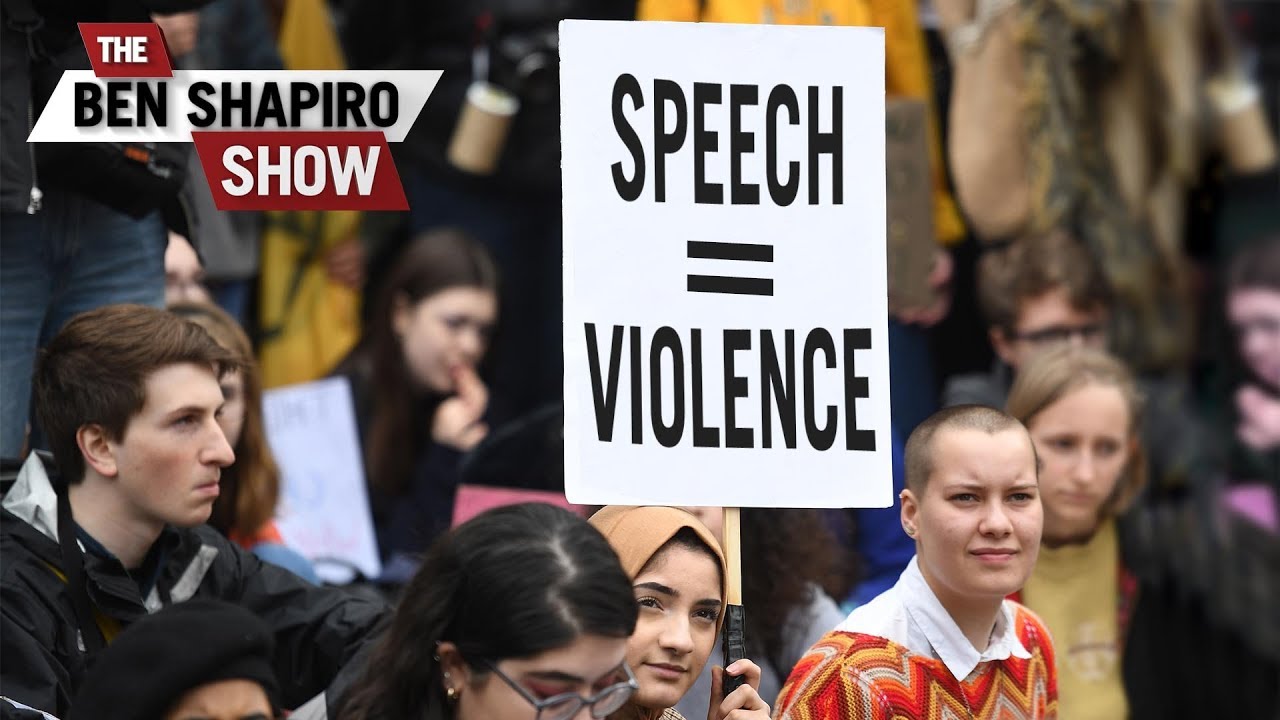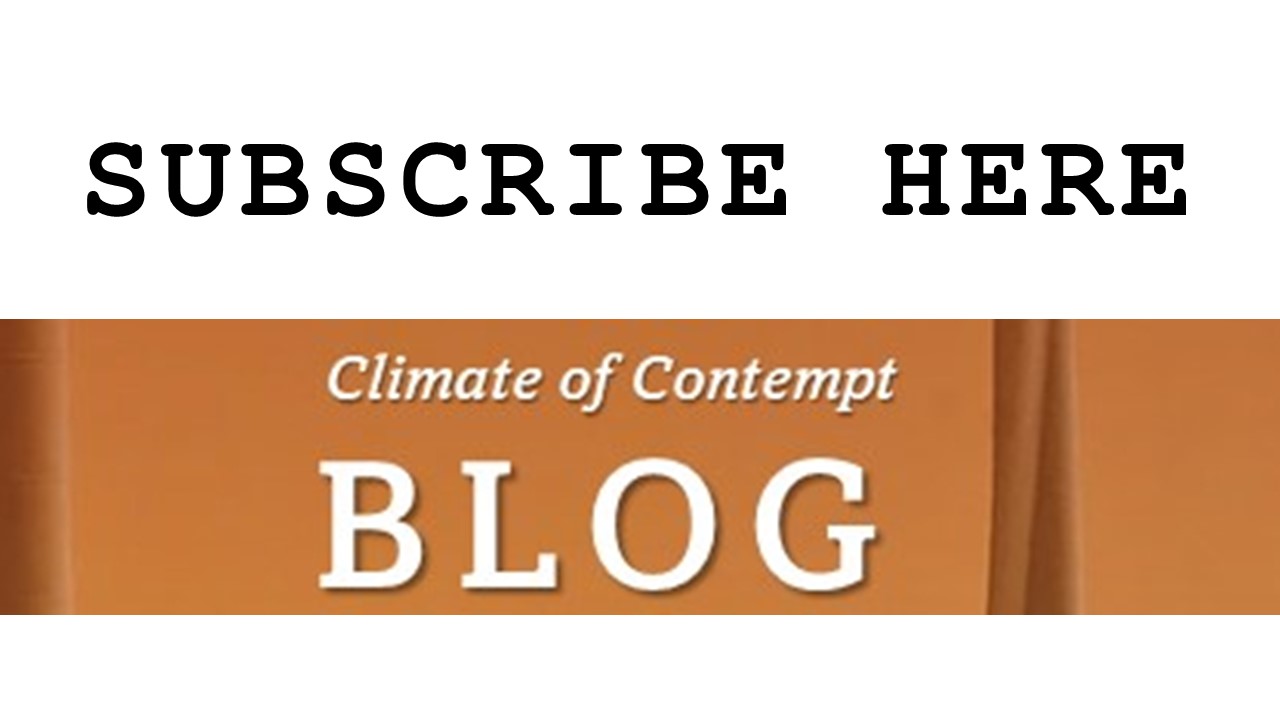A few weeks ago was graduation weekend at the University of Texas, during which I had the occasion to walk from the law school (in the northeast corner of campus) to an appointment at the business school (at the southwest corner). In that 15 minutes I passed by many joyful families and graduates, celebrating, taking pictures, etc. My brain was flooded all at once with reminders that:
- higher education is a privilege, one that is not available to everyone
- I am fortunate to be part of the system that delivers that education to appreciative students and families
- The quality of American universities attracts students from all over the world, and
- Bringing together students with a diversity of viewpoints, backgrounds and experiences is part of what makes our universities great.
My walk took me past people speaking, English, Spanish, Arabic, Chinese, and two or three other languages I didn’t recognize. I am proud that the University of Texas attracts bright and eager young people from all over the world who want to learn, and to carve out a successful path for themselves. Some of them come from countries that have never seen democracy, yet they get to experience American democracy for a while. And it has been my privilege to watch those students come to grips with its messy complexity.
On that walk I also thought about how higher education is under attack. The Trump administration is (i) taking an ax to the institutions that fund research, (ii) using its power to threaten institutions of higher learning, (iii) revoking visas of foreign students for their speech, and (iv) even snatching legally-present foreign students off the street for detention or expulsion without due process. As I walked, a wave of emotion came over me thinking about all of those things at once.
In the early 2000s I was fortunate to take students on three occasions to Central European University (CEU) in Budapest, Hungary. That institution was founded to promote liberal democratic values in post-Warsaw Pact nations. It is difficult to describe how inspirational and eye-opening those trips were. Of course, since then CEU has been forced out of Budapest by Viktor Orban, and American conservatives have embraced both Orban’s authoritarian ways and his (perhaps anti-Semitic) demonization of CEU’s American founder.
For a long time I have written about about the erosion of the foundational Enlightenment values on which our democracy depends, and its impact on policy. Now we must worry about protecting universities’ role in promoting and exemplifying those values. The Internet makes that harder to do, by making us more likely to misperceive each other and the world — something scholars call “pluralistic ignorance.” Feelings of alienation from politics are driving people away from liberal democratic values and toward the political ideologies that treat adversaries as enemies, worthy of neither civility nor respect. That is a worrying trend because demonization begets more demonization, in a self-perpetuating cycle.
The title of this post is a lyric from a song I once wrote about the historical rise of those liberal democratic values: i.e., about the connection between pluralism and respectful, reasoned discussion, on the one hand, and a freer, stronger and kinder society, on the other.[1] Enlightenment philosophers were explicit about the value of pluralistic, liberal democracy as a vehicle to facilitate and cultivate the connection between reason and kindness, and thereby to produce good government. Historian James Buchan described the Enlightenment this way: “A new theory of progress, based on good laws, international commerce and the companionship of men and women, displaced the antique world of valour, loyalty, religion, and the dagger.”[2]
That system is fragile, and it depends upon respect for truth and each other, and upon the marketplace of ideas to expand the store of available knowledge. If we kneecap research and deny some segments of society access to that higher education, it slows the search for new understandings.
The Administration’s assault on universities appears to be part of a broader strategy to weaken institutions that might challenge its apparent authoritarian intentions, and there is plenty of evidence to support that idea. But another part of the assault is based on the idea that it is universities that are censoring ideas by denying a platform to conservative thought. This “universities as left-wing indoctrination centers” narrative is mostly wrong, but only mostly. It is popular on the right in part because it serves the political purposes of those who promote it, but also because there are two kernels of truth floating around within it.
One is the fact that university faculty contain a much smaller percentage of conservatives than the general population, especially within certain departments and disciplines. A seminal 2006 study found that only 9 percent of university faculty identified as “conservative,” with the remainder split evenly between “liberal” and “moderate.” Another, contemporaneous study found especially high ratios of Democrats to Republicans in the humanities, and lower ratios in professional studies and science and engineering.
While there are explanations for this distribution that go beyond bias in hiring, the fact remains that conservatives on campus — faculty and students — feel like a small minority because they often are. However, it does not follow from that that liberal professors squelch or fail to acknowledge or develop ideas associated with conservatism. To the contrary, the vast majority are conscientious about creating a classroom environment that is open to all views.
Yet students today apparently feel uncomfortable speaking freely in class, and wide swaths of the public believe that university environments are more friendly to left-leaning than right-leaning expression. I suspect that if and when faculty send that kind of signal to students, most do so unconsciously rather than intentionally. And students’ use of social media to try to sanction other students for in-class speech exacerbates the sense that speaking up is risky. These are important challenges that university faculty and leadership are working to overcome. They neither endorse these dynamics nor are they indifferent to them, in my experience. But they remain a problem.
The second kernel of truth in the GOP assault on universities is that some academic paradigms do serve to suppress ideas by ruling out of bounds (read: delegitimizing rather than engaging or refuting) a much broader set of ideas than the set excluded from first amendment protection. This so-called “woke-ism” issue has been the subject of intense press scrutiny for a long time, and the GOP has leveraged it to its electoral advantage.
One byproduct of this line of thought is that universities have split over whether and when to sanction speech that causes serious offense in the listener. At one pole are free speech absolutists who believe that the freedom to express (and the ability to cope with hearing) offensive speech is a central part of the educational process and a pillar of academic freedom. The so-called Chicago Principles are perhaps the best expression of this point of view. At the other pole are proponents of postmodern or critical studies ways of thinking about speech-as-violence. According to this view, speech that offends too deeply ought to be sanctioned, just as the ,aw sanctions hostile environment sexual harrassment.
This fight has become sufficiently intense to divide, often sharply, the organizations that support academic freedom. The Associations of American University Professors (AAUP) and the Foundation for Individual Rights and Expression (FIRE) each claim to be dogged defenders of academic freedom, but their views of what that means differ significantly (see here and here). The Academic Freedom Alliance (AFA) appears to sit somewhere between AAUP and FIRE on these issues, though both APA and FIRE were formed in partial reaction to the AAUP’s stances on these issues.[3]
Contrary to popular opinion, this divide doesn’t map neatly onto partisan divisions. While conservative academics tend to support the traditional, broader definition of beneficial speech,[4] so do many left-leaning academics. That has been the case from the first late-20th c. flowering of postmodern ideas about speech. One illustrative example is law professor Dan Farber, no conservative, who in 1997 co-authored a ferocious book-length attack on postmodernism’s redefinition of acceptable speech, calling it a “radical assault on truth.”
Nevertheless, the perception persists that left-leaning academics pose a threat to students’ ability to think and speak freely. That perception may be feeding support for Donald Trump despite the Administration’s unprecedented attacks on universities and the presence of foreign students therein. Right now, that support is producing harm to the basic research that benefits society and to the environment that has made American universities the envy of the world — an envionment that is open and broadly welcoming to both ideas and people. If Republicans manage carry that threat to its logical conclusion, that will represent a preventable and historic tragedy. — David Spence
————
[1] You can find a recording of that song here. The full chorus lyric is “There’s peace within the silence / And reason in the mind / There’s reason in the kindness / So remember to be kind.” The song is also an ode to the City of Edinburgh, a place whose political philosophers played such a key role in the formulation of the Enlightenment values that influenced the drafters of the U.S. Constitution.
[2] Buchan, James. 2007. Capital of the Mind: How Edinburgh Changed the World. Edinburgh: Birlinn, p. 2.
[3] My University of Texas colleague David Rabban has published a comprehensive exploration of these various meanings of academic freedom, and its relationship to the first amendment. You can find that book here.
[4] Many GOP politicians, on the other hand, seem to embrace free speech selectively, condemning anti-Semitic speech more eagerly than other types of speech that offends.




